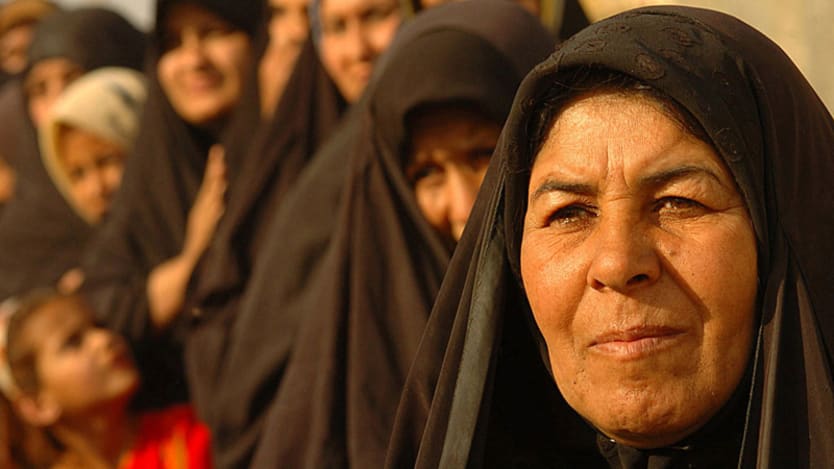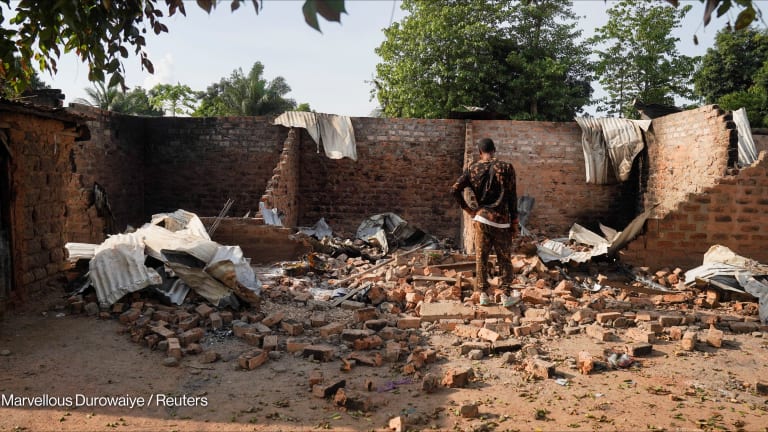
My younger sister, with the common sense only children have, asked me about the Syrian conflict years ago: “If everyone didn’t give them so many weapons, wouldn’t it be harder for them to have a war?”
The short answer is of course, “Yes.”
War is a big business. According to the Stockholm International Peace Research Institute, over $1.5 trillion is spent on military expenditures worldwide annually, with very little regulation. Even more alarming, the value of the global trade in small arms and light weapons almost doubled between 2001 and 2011, from $2.38 billion to $4.63 billion.
Nobel Peace Prize winner and former president of Costa Rica Oscar Arias Sanchez said it better than I ever could: “We have produced one firearm for every 10 inhabitants of this planet, and yet we have not bothered to end hunger when such a feat is well within our reach. Our international regulations allow almost three-quarters of all global arms sales to pour into the developing world with no binding international guidelines whatsoever. Our regulations do not hold countries accountable for what is done with the weapons they sell, even when the probable use of such weapons is obvious.”
My sister’s incisive question reminded me of the millions of other questions about the failures of the international community to prevent war, many of which I had been asking myself — and anyone else who was willing to listen — for years. What is the point of multilateral systems if unregulated militarization continues to go unchecked and world powers sit by while unstable areas are flooded with weapons?
These thoughts again came to mind earlier this month, when the lifeless body of 3-year-old refugee Aylan Kurdi was found awash on Turkish shores. (I will be the first to admit that upon hearing the news, I hugged and kissed my 2-year-old nephew more than usual as I put him to sleep that evening). The young boy and his family, like millions of others, were fleeing from Syria’s armed conflict, a war that international and regional powers have done very little to mitigate.
As media erupted with the image on the front page and politicians raced to appease their citizens with promises of support for the estimated 9 million refugees of the Syrian war, it became clear to me that others were asking the same question: Instead of taking advantage of the undeniable influence and strength of a cohesive international strategy to address the Syrian conflict when it was in its infancy, why have we continued to allow the senseless murder of thousands of Syrians?
It is, after all, our collective failure to respond to the early days of the conflict that has sparked even more violence throughout the region, ranging from the subtle xenophobia toward refugees in our media and on our streets to the blatant extremist factions like the Islamic State group, who have taken advantage of a security and power vacuum that we have helped to create. Hasn’t it been proven enough that the “Band-Aid” solution approach is not working?
Providing a response solely when conflicts erupt in fragile regions and states doesn’t offer a permanent solution, and history shows us that when we do respond, it is often too little, and too late.
In their dealings with most fragile states, the international community — including the development sector — limits itself to the capital, rarely meeting with key community actors from different cities and regions. It is past time the multilateral system focus our resources, expertise and influence on the prevention and mitigation of conflict through a range of tools that can increase our chances of success: justice, global disarmament, effective economic policy, representative political structures, accountable media and social reform.
There is one tool in particular that has never been so urgent for us to utilize in efforts to prevent conflict, yet it is continually overlooked: the participation of women. Many women already engage in unofficial prevention practices in their community, and that should be recognized and incorporated into official early warning systems.
This October, the U.N. Security Council will convene a high-level review of issues concerning women, peace and security around the globe. As a part of the review, a global study will be released, which surveys more than a decade of advancements and gaps in the implementation of UNSC resolution 1325, which recognizes the necessity of women’s participation in conflict prevention and peacebuilding to achieve global peace and security.
The global study comes at a time when the international community desperately needs to use every strategic tool at hand to prevent the devastation caused by armed conflict. While contributions of local women and youth are substantial to diffusing conflict and countering violent extremism on a daily basis, they continue to be sidelined in conflict prevention strategies, and even within the U.N. itself — “women’s empowerment teams” in political missions are frequently sidelined and command very little respect or resource.
In July 2012, two years before the Islamic State group declared itself a caliphate and the international community took notice, the International Civil Society Action Network reported that women in Iraq were concerned about the increasing threat of regional violence: “There is also fear that the sectarianism in Syria could spill over into Iraq. The trend towards sectarian divisions has been rising since the summer. In July 2012 the leader of al-Qaida in Iraq, Abu Bakir Al Baghdadi, warned of a new offensive: ‘breaking down walls.’”
Their fears were largely unheard or ignored by policymakers, yet they saw what was to come before others saw the headline in their morning papers. One has to wonder: How much more stable would our region be if we sought out and gave importance to the voices of those most affected?
I know these solutions are not immediate, and they definitely don’t have the same urgency as a military strike. But war continues to beget war, and with our increasingly connected world, it affects all of us. Only by addressing the very causes of conflict do we minimize the risk of prolonged violence and regional spillover, creating a greater opportunity for local peace today and global stability and security tomorrow. When we do, making sure women are at the table would be a smart place to start.
Conflict in Context is a monthlong global conversation on conflict, transition and recovery hosted by Devex in partnership with Chemonics, Cordaid, Mercy Corps, OSCE and USAID. We’ll decode the challenges and highlight the opportunities countries face while in crisis and what the development community is doing to respond. Visit the campaign site and join the conversation using #ConflictinContext.








